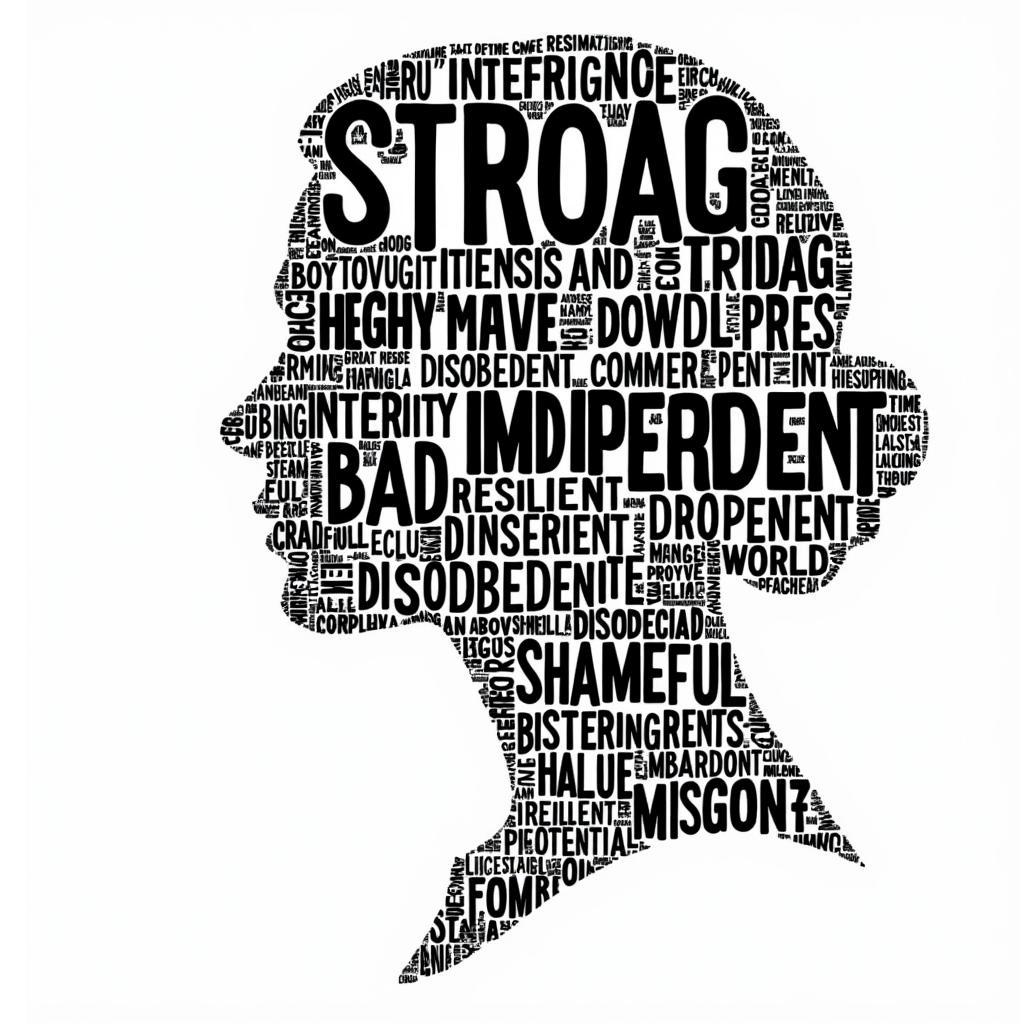“Buri aurat” quotes in Hindi, often translated as “bad woman” quotes, are a complex and often misunderstood topic. These quotes reflect societal perceptions and judgments about women who deviate from traditional roles or expectations. Exploring these quotes can offer insights into cultural norms, gender dynamics, and the evolving understanding of women’s place in society.
Delving into the Meaning of “Buri Aurat”
The term “buri aurat” carries a heavy weight of cultural baggage. It can refer to a woman considered immoral, disobedient, or rebellious. This label can be applied to women who challenge patriarchal norms, express their sexuality openly, or simply refuse to conform to societal expectations. Understanding the context and nuances of these quotes requires careful consideration of the cultural landscape in which they exist.
Cultural Context and Societal Perceptions
Indian society, steeped in tradition and patriarchal structures, often defines women’s roles narrowly. Deviation from these prescribed roles can lead to labeling and stigmatization. “Buri aurat” quotes often reflect these societal judgments, perpetuating stereotypes and reinforcing traditional power dynamics.
The Power of Language and Interpretation
 Words forming the shape of a woman's face, some positive and some negative, illustrating the power of language
Words forming the shape of a woman's face, some positive and some negative, illustrating the power of language
Language plays a crucial role in shaping perceptions and reinforcing biases. The term “buri aurat” itself is loaded with negative connotations. Examining these quotes requires understanding the subtle ways language can be used to control, judge, and marginalize women.
Challenging Traditional Narratives
While some “buri aurat” quotes reinforce negative stereotypes, others can be interpreted as expressions of female agency and resistance. Women who challenge societal norms are often labeled “bad,” but their actions can also be seen as acts of defiance and empowerment.
Reclaiming the Narrative: “Buri Aurat” as Empowerment
Some contemporary interpretations reclaim the “buri aurat” label as a symbol of empowerment. By embracing this label, women can challenge the negative connotations associated with it and redefine what it means to be a woman in a patriarchal society.
The Evolution of Gender Roles and Expectations
 Depiction of women breaking free from traditional roles and embracing modernity
Depiction of women breaking free from traditional roles and embracing modernity
As society evolves, so do gender roles and expectations. The traditional definition of a “good woman” is increasingly being challenged. Examining “buri aurat” quotes allows us to understand this evolution and the ongoing struggle for gender equality.
Conclusion
Understanding “buri aurat” quotes in Hindi requires a nuanced approach, considering the cultural context, the power of language, and the evolving understanding of gender roles. While these quotes can reflect negative stereotypes, they also offer a window into the complexities of female identity and the ongoing struggle for empowerment in a patriarchal society. Exploring these quotes can be a starting point for critical discussions about gender dynamics and the importance of challenging traditional narratives.
FAQ
- What does “buri aurat” literally translate to? (It literally translates to “bad woman.”)
- Why is the term “buri aurat” controversial? (It’s controversial because it can be used to silence and shame women who don’t conform to societal expectations.)
- Can “buri aurat” quotes be interpreted positively? (Yes, some interpretations reclaim the term as a symbol of empowerment and defiance.)
- How do these quotes reflect Indian culture? (They reflect traditional patriarchal norms and the pressures women face to conform.)
- What is the significance of studying these quotes? (Studying them helps us understand gender dynamics and the evolution of societal expectations for women.)
- Are there similar concepts in other cultures? (Yes, many cultures have similar concepts and terms used to control and judge women’s behavior.)
- How can we challenge the negative connotations associated with “buri aurat”? (By reclaiming the term, promoting positive representations of women, and challenging traditional narratives.)
For further support and information on related topics, please contact us at Contact@ViperCircle.com or visit our office at G-5, लोअर परेल, सेनापति बापट मार्ग, मुंबई, महाराष्ट्र – 400013, भारत।. Our customer service team is available 24/7.